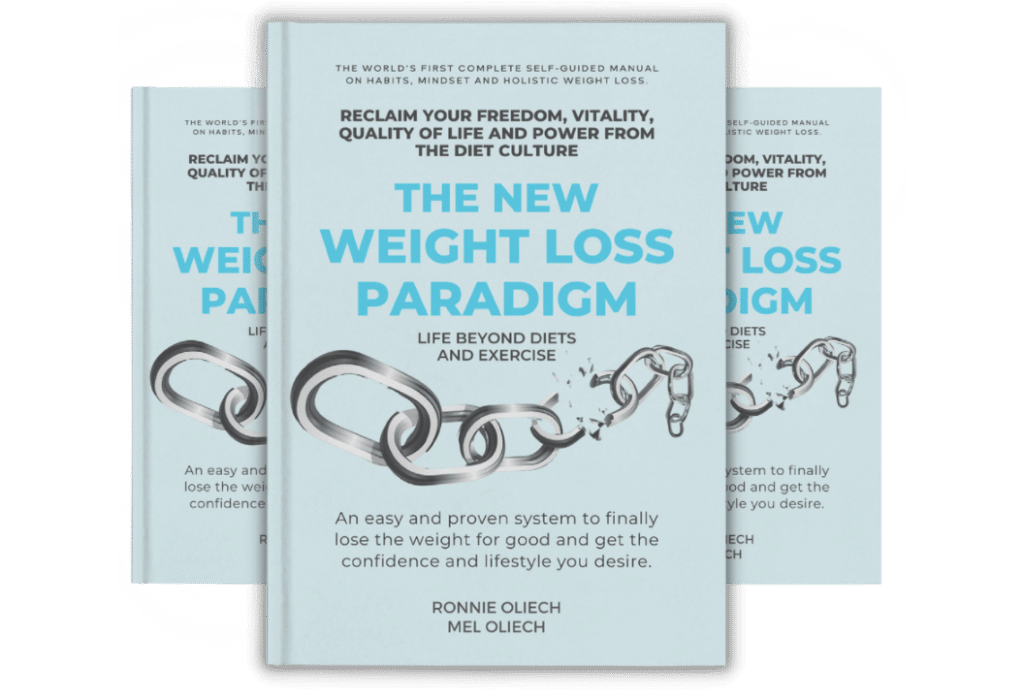One of the best things you can do to help your body transformation journey is get plenty of sleep.
That’s right. Sleep.
You’ll actually get faster, better weight loss results if you focus more on your sleep, instead of skimping on it, trying to fit in extra exercise sessions.
But how can that be?
Science proves it
To find out in more detail how sleep affects your weight, make sure you read our blog Sleep and weight loss: The unexpected connection. But for now, here’s a brief summary on how poor sleep affects your weight and your body transformation.
Studies show that poor sleep:
- is associated with weight gain and a higher likelihood of obesity
- increases your appetite
- makes it harder for you to make healthy choices and resist tempting food
- makes you more likely to consume extra calories
- is linked to an increased intake of foods high in calories, fat and carbohydrates
- lowers your metabolic rate
- causes insulin resistance, which is a pre-cursor to developing diabetes
- leads to higher stress levels, which also play havoc with your weight by increasing cravings, and releasing hormones that make it harder to lose weight.
So now you’re convinced you need to improve your sleep, how do you do it?
Here are our top tips on how to improve your sleep, so you can improve your body!
Have a structured routine
One of the best things you can do to improve your sleep is to have a regular routine. Going to bed and waking up at the same time each day will help set your body’s circadian rhythm. This means that your body will get used to waking up and going to sleep at the same time each day, which has been shown to increase sleep quality.
Developing a nightly routine that will help you relax and prepare you for bed will also help improve your sleep quality and duration. Keep reading to discover the best way to get ready for sleep.
Expose yourself to natural light
As soon as you wake, expose yourself to natural light by opening your curtains or blinds. Studies show that people who are exposed to sunlight during the morning hours sleep better at night and tend to feel less stressed than those who don’t get much morning light. If you wake up when it’s dark, aim to get sunlight exposure as early as you can. You should also try to get outside as much as you can during the day.
Exercise regularly
Regular exercise has also been shown to improve the quality and duration of sleep. However, avoid exercising too late in the day, as this may act as a stimulant, making it harder to go to sleep. Exercise also increases your body temperature, and it’s much harder to sleep when you’re hot. Aim to exercise in the morning and make it a regular part of your weekly routine. You don’t have to engage in strenuous activity to reap the benefits. The best way to make regular exercise part of your lifestyle is to choose activities that you enjoy, whether it’s walking, cycling, swimming, playing golf, or even a team sport.
Limit napping
While napping can have its benefits, it can also interfere with your sleep at night. If you’re going to nap, limit it to 20-30 minutes, and avoid taking one from mid-afternoon onwards.
Turn off electronics
You may love to check your social media feed, or even relax by gaming, but make it a habit to remove yourself from all electronic devices at least 30 minutes before going to bed. Not only do these activities stimulate the brain, they halt the production of melatonin. Melatonin is a hormone that is produced as light levels decrease, which aids deep sleep. However, too much light, especially the blue light that is emitted from electronic devices such as smartphones, tablets and computers, inhibits the production of melatonin, which will interfere with your sleep.
Minimise TV and social media during the week
While we’re on the subject of electronics, minimising the time you spend watching TV and being on social media during the week will greatly improve the quality and duration of your sleep. Not only will you avoid the blue light that we mentioned above, you’ll also avoid getting caught up in a show or scrolling through your social media feed and realising it’s way later than you thought. Saving your TV-time for the weekend (you can watch almost anything online now), and replacing it with another activity that will help prepare you for sleep, such as reading or meditation, will mean you’ll end up going to bed earlier and sleeping much better.
Plan for the next day
Being prepared for the next day can also help you feel more relaxed before you head to bed, as you won’t have the worry about ‘getting ready in time’ or ‘forgetting’ to do things. If you exercise in the morning, lay your gym gear out ready to put on when you get up, and make sure your bag is packed. Be sure to have prepared your pre- and post-workout meals as well. Don’t forget to get your work clothes ready for the next day, and prepare a healthy lunch. And remember to set your alarm! To save you trying to remember your alarm each night, use the function on your smartphone to schedule your alarms for the entire week.
Quiet your mind
It’s important that you prepare your body and mind for sleep by engaging in relaxing activities before bed. Avoid having difficult conversations or arguments, checking the health of your finances, or any other activity that may cause you to feel stressed, angry or worried. If there are things on your mind, whether they’re worries or to-do lists, try doing a ‘brain dump’ by writing them down.
Other activities that will help you quiet your mind and improve your sleep include reading, listening to music, meditation, a relaxing bath, a shower before bed, or deep breathing.
Avoid stimulants
Just as you should avoid activities that stimulate you, you should also avoid substances that act as stimulants. These include caffeine (tea, coffee, chocolate, energy drinks), alcohol, nicotine, and other drugs. Instead, try drinking herbal tea — there are a number of blends designed to improve your sleep.
Eat for good digestion
There’s nothing worse than trying to fall asleep when you don’t feel well or you’re too full. Avoid eating large amounts of food just before bed. Instead, eat a regular-sized meal a few hours before. Focus on eating healthy meals that contain protein, carbohydrates and healthy fats. Avoid fried, fatty or fast foods as these take longer to digest which will interfere with your sleep. Spicy foods should also be avoided as they can irritate your stomach and make it hard to relax.
Limit liquid before bed
Drinking water throughout the day is important for overall health, but you should limit your consumption of liquids in the hours leading up to bed. Otherwise, your sleep will be interrupted by the need to get up to the toilet in the night.
Prepare your room
Where you sleep is just as important as what you do prior to bed. Make sure your room is quiet, dark and at the right temperature. Experts recommend around 20⁰C. Don’t forget to open a window to ensure adequate ventilation, as a stuffy room can cause overheating, poor sleep and bad dreams. When it comes to electronic devices, put them on airplane mode (the alarm will still go off, but you won’t be woken up with dings and pings all night), and put your device face-down so the screen won’t light up your room.
Ensure you’re comfortable
Wear comfortable clothes to bed that don’t restrict you, or cause you to become overheated. Make sure that your mattress is comfortable and supportive, and that your head is supported properly with the right pillow. If you suffer from constant back, shoulder or neck pain, it could be your sleeping arrangements that are to blame. Choose bedding made from cotton or linen, as it is less likely to cause irritation. And don’t forget to have a blanket handy, so you can pull it up if you become cold in the night.
Get at least 7 hours
While there’s no hard and fast rule about how many hours sleep you should get, experts recommend adults get between 7 and 9 hours every night. That means you should make 7 hours your minimum. That’s 7 hours of sleep! Getting into bed 7 hours before you wake up isn’t enough. Don’t forget, you need to allow time to clean your teeth, go to the bathroom, set your alarm, get into bed, and fall asleep. To make sure you maximise your sleep time, start heading towards bed an hour before you want to be asleep.
For example, if you need to get up at 6am, start heading to bed by 10pm, as this should give you plenty of time to be asleep by 11pm.
Use a sleep app
There are many sleep apps out there that track all kinds of data including the quality of your sleep, amount of time spent asleep, stages of sleep, snore time and health metrics related to your sleep (e.g. exercise, caffeine consumption, stress, etc.).
While sleep experts are still divided about how useful these apps are (for example, it isn’t possible to accurately track REM sleep through these apps) they agree that they can be a useful tool to help you become more aware of your sleep patterns. From this perspective they can be useful in encouraging you to make sleep a priority, by getting to bed earlier, and being more aware of the things that impact your sleep.
Need help with the rest of the weight loss puzzle?
While sleep plays an extremely important role in transforming your body and helping you lose weight, it’s not the only piece of the puzzle.
At Imani Tribe, we help our clients find all the pieces of the weight loss puzzle, and help them piece them together so they have a complete blueprint on how to lose weight and keep it off for good.
If you’ve been trying to lose weight, and not had much success, let us help you.


















